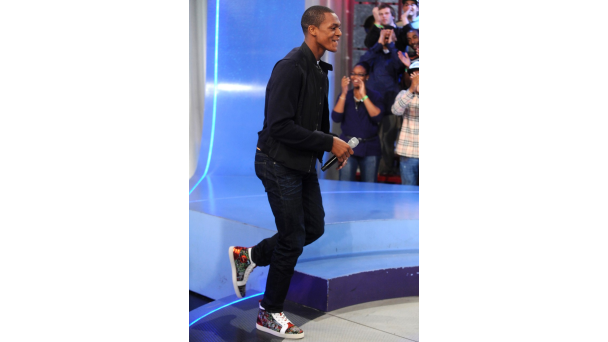Bobby Grich, one of the best second basemen in the history of Major League Baseball, was actually a six-time All-Star—thrice with the Orioles and thrice with the Angels. The thing is, there is a running theme of getting overlooked that runs through Grich’s baseball career: he was a once and done on the 1990 Hall of Fame balloting; his name has yet to appear on a veteran’s committee Hall of Fame ballot; and twice he was jobbed out of an All-Star selection.
The first All-Star snub came in 1973, when Grich was having in all likelihood the greatest defensive season any second baseman has ever had. He would lead the majors that season in putouts, assists, and double plays turned by a second baseman, and he would break the single-season fielding percentage record for a keystoner with his .995 mark. For those of you into the newer stats, Grich would post a 27 total zone runs score, which is the highest total ever for a second baseman—Pokey Reese tied Grich’s record in 1999. Among AL second basemen, Rod Carew was clearly having the best offensive first half in 1973, but one of the second base reserves chosen that year was Cookie Rojas of the Kansas City Royals. At the break, Grich was not only having a better defensive season than Rojas, but he was also having a much better season offensively:
- Grich: 8 HRs, .360 OBP, 10 SBs
- Rojas: 3 HRs, .321 OBP, 11 SBs
Snubbed. He was unfairly left off of the All-Star squad roster as an Oriole in 1973, and then again ten years later as an Angel in 1983. Grich did not have a record-setting defensive season in 1983, but the 34-year-old was no slouch, either. He finished the year in fifth place in the the league for double plays turned by a second baseman, and he led the majors in range factor per game by a second baseman. Offensively, you could have an interesting debate arguing whether Grich or Lou Whitaker should have been the starting second baseman that year, but the honor went to Manny Trillo, who was clearly having the lesser year of the three when the All-Star break came around:
- Grich: 8 HRs, .407 OBP, 1 SB
- Whitaker: 5 HRs, .363 OBP, 8 SBs
- Trillo: 0 HRs, .320 OBP, 1 SB
Snubbed. The harshest snub of his career, however, will be if the Veteran’s Committee fails to include Grich when it composes its Expansion Era ballot for members to vote on later this year. Hopefully, the committee has new members, or if not, here’s crossing my fingers that the incumbent members will be willing to look at newer points of view so that Bobby Grich can finally receive his due while he still has the opportunity in this lifetime to enjoy it. Here is a partial resume of his Hall-worthy achievements:
- His 70.9 WAR is the eighth-highest career mark of any second baseman in MLB history. His JAWS score of 58.6 is seventh best, nearly two points higher than the average score (56.9) of the 20 second basemen already enshrined.
- The only other second basemen with even 60 WAR who are not in the Hall of Fame are Lou Whitaker, Chase Utley, and Willie Randolph.
- In 1981, he became the first second baseman to lead the American League in home runs since Nap Lajoie did it in 1901.
- He had a career .371 on-base percentage, with a high of .414 in 1983. His career mark is equal to Robbie Alomar’s and well ahead of Craig Biggio, Joe Gordon, and Jeff Kent’s, among others.
- He won four Gold Glove awards and a Silver Slugger.
- Of the six second basemen elected into the Hall of Fame since 1991, Grich has had more seasons of at least a 120 OPS+ than all of them. Grich had an OPS+ of at least 120 ten times in his career. Tony Lazzeri had seven, Ryne Sandberg , Joe Gordon, and Roberto Alomar had six, Craig Biggio had five, and Bill Mazeroski had none.
- He was the second baseman for the team pretty much everybody recognizes as being the best defensive team of all time—the 1973-1975 Brooks Robinson/Mark Belanger/Bobby Grich/Paul Blair Baltimore Orioles.
- Three times in his career, he fielded over 900 chances in a season as a second baseman, a feat only the brilliant Bill Mazeroski has ever topped.
- He broke the record for fielding percentage by a second baseman in 1973 (.995), and then he broke it again in 1985 (.997).
- His 484 putouts in 1974 are the most by a second baseman since Gold Glove awards began to be handed out in 1957.
And that was just what Grich did in the regular season. In the postseason, Grich has had several terrific highlights, including: hitting a game-winning home run off of Rollie Fingers in Game 4 of the 1973 ALCS; hitting a walk-off, RBI-single in the 11th inning to end Game 4 of the 1986 ALCS; and hitting a home run that gave the Angels a 3-2 lead in the sixth inning of the legendary Game 5 of the 1986 ALCS.
Here’s hoping that when the Veteran Committee fills out its Hall of Fame ballot later this year, Bobby Grich will not get snubbed again.
Add The Sports Daily to your Google News Feed!
